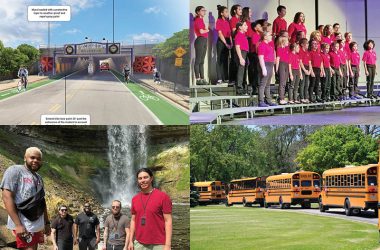Gov. J.B. Pritzker announced Tuesday, Jan. 31, that the state’s public health emergency will end on May 11, aligning the state with the federal government’s decision to end the national public health emergency.
“Our state’s disaster proclamation and executive orders enabled us to use every resource at our disposal from building up testing capacity and expanding our healthcare workforce to supporting our vaccine rollout and mutual aid efforts,” Pritzker said. “Let me be clear: COVID-19 has not disappeared. It is still a real and present danger to people with compromised immune systems — and I urge all Illinoisans to get vaccinated or get their booster shots if they have not done so already.”
After joining 12 other states and the Department of Health and Human Services in declaring a public health emergency at the outset of the COVID-19 pandemic on March 9, 2020, the state of Illinois has continued to remain aligned with the federal government to ensure every available resource was utilized in the state’s COVID-19 response.
Illinois residents were able to collect additional SNAP benefits, more than 1.4 million children received Pandemic EBT (nutrition) support, and Medicaid expansion ensured access to telehealth options and the resources Illinoisans needed to stay healthy.
The proclamation formalized emergency procedures by activating the State Emergency Operations Center (SEOC), bringing together decision makers from every state agency and the state’s highly qualified mutual aid network to deploy resources as necessary during the public health threat.
Since March of 2020, state and local partners benefitted from a disaster proclamation in the following ways:
• Allowing federal reimbursement for state response costs.
• Allowing use of State Disaster Relief Fund, covering direct state costs and reimbursements to Illinois National Guard and mutual aid groups.
• Allowing use of the state’s mutual aid network, groups of public safety response professionals — including hundreds of health care providers and management professionals, law enforcement officers, fire fighters, emergency medical technicians and disaster response professionals — that are available to deploy to areas of shortage.
• Authorizing the Governor to activate Illinois National Guard reservists, some of whom were doctors and nurses and served on the front lines of the pandemic response.
• Allowing expedited procurement should it be necessary.
• Authorizing additional executive actions as needed to protect public health and safety.


